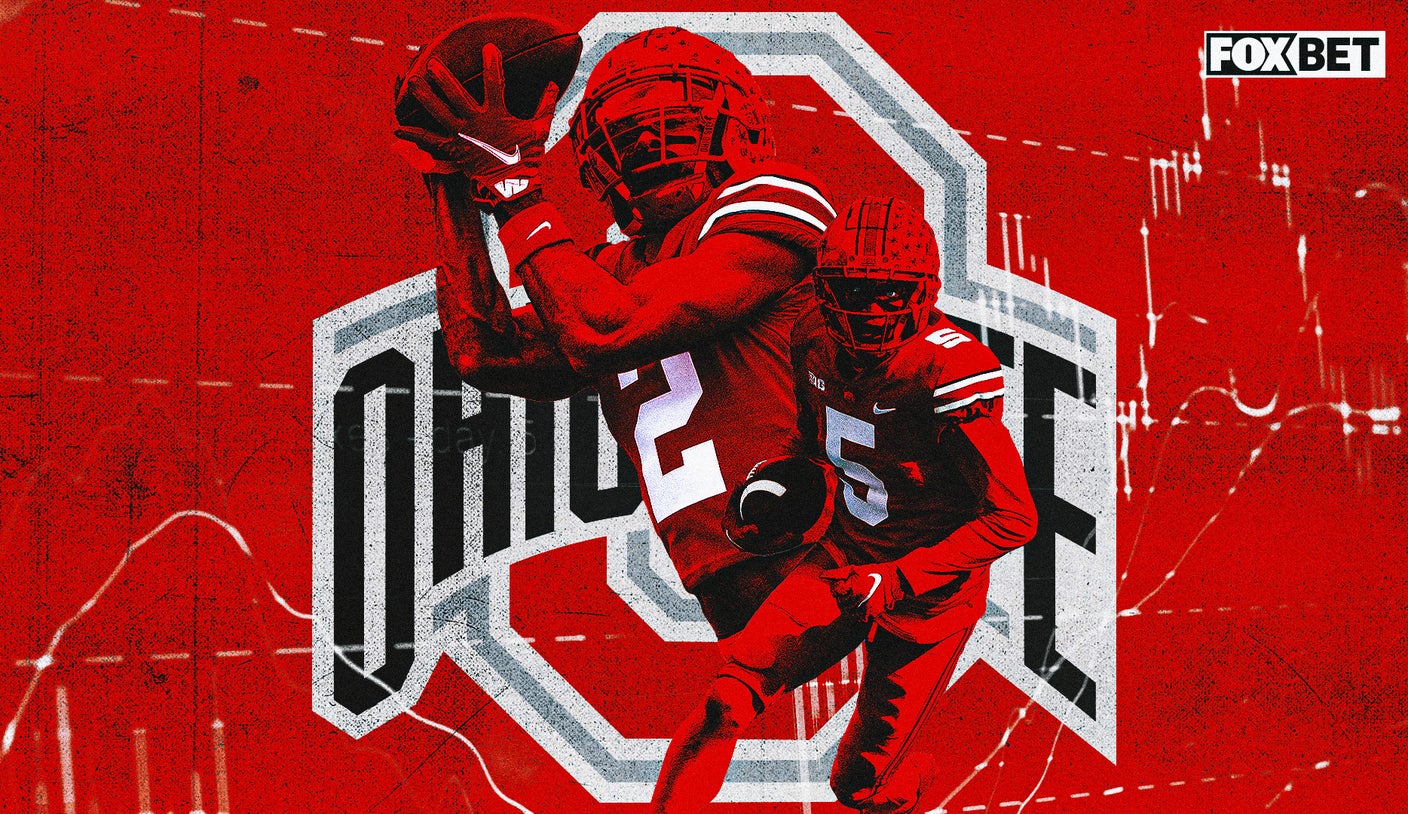New NFL CBA: How It Could Impact Survivor Pool Strategy
March 20, 2020 – by Jason Lisk

Lamar Jackson now has to survive an extra week of games, and maybe another playoff opponent (Photo by Shelley Lipton/Icon Sportswire)
The NFL and NFLPA agreed to a new Collective Bargaining Agreement (CBA) in March of 2020, and some of the changes will have an impact for those who play in NFL Survivor Pools. You can see a discussion of many of the changes in the new NFL CBA in this article, including expanded game day rosters, changes to drug policy, and rules on salaries.
With our primary concern of survivor pools, there are two main changes that could impact strategy:
The playoffs have been expanded from six to seven teams in each conference beginning with the 2020 season, with only the No. 1 seed in each conference getting a bye in the first round; ANDThe regular season schedule could expand from the current 16-game schedule to a 17-game schedule between 2021 and 2023.
We’ll walk through how these changes could impact survivor pools.
Survivor Impact of Expanded NFL Playoffs in New NFL CBA
Content:
ToggleThe NFL’s expansion of the playoffs (which can begin at the end of the 2020 season) now means 14 teams will advance, rather than 12 teams. Only the top seed in each conference will get a bye during the Wildcard Round.
As a result, the following are all true.
The average chance of a team making the postseason goes up 6.5%.The teams with the best records could clinch playoff spots (slightly) earlier.Twelve teams will now be in action in the first weekend of the playoffs, compared to eight teams in the past.The No. 1 seeds should see a slight boost in their advancement odds for a few reasons. One is the increased chance that the No. 2 seed loses. The second, and related, reason is that they would face any advancing No. 7 seed.This impacts the No. 2 seeds most negatively, as they now have to play an extra game that introduces the risk of a loss (and prevents them from resting for a week).The No. 3 seed also sees a slight improvement in their playoff odds, as they have the possibility of hosting a Divisional Round game now. Under the old system, the No. 3 seed always played at the No. 2 seed in the Divisional Round if they advanced.The No. 7 seed, of course, sees the biggest boost, from have zero chance to having some chance of advancing.
Pools that extend into playoffs with no reset on teams
Most NFL Survivor pools do not extend into the playoffs, but a subsection of pools do. Between 5% and 10% of our customers’ subscriber entries are in survivor pools that extend to the playoffs. Participants that play in those pools have to plan ahead in order to potentially use some teams in playoff weeks instead of the regular season. If you use all the playoff teams before the postseason, you will run out of choices when the playoff start.
This rules variation tends to be present in larger pools that would otherwise have multiple entries survive the regular season.
With the expansion of the playoff field, there are some subtle changes to strategy in these types of pools. Here are some thoughts on what those changes might be:
The biggest impact is the increased number of options in the first weekend of the playoffs, with 12 teams to choose from. In addition, it’s less likely that even an entry lacking foresight used all the playoff teams up during the regular season, with two more options.Even though the No. 7 seeds are typically going to be underdogs, they do give a survival “out” to entries that have no other options. The quality of that option from the additional game could vary quite a bit. For example, in 2019, Kansas City would have been a much larger favorite over Pittsburgh than Green Bay would have been over the Los Angeles Rams, if the rule change had been in effect.Top teams will have a slightly higher chance of making the playoffs under this change. As those odds move to 100% a little sooner, they could be even more attractive to hold (and save for the playoffs) during the regular season if there are other alternatives in a given week.
Most of the strategy will still be similar in these type of pools. You still want to have some options that not only will be in the playoffs, but can win for you once you get there. So you still want to try to preserve some teams that give you the best chance to win you the pool in the playoffs. Over the last three seasons, our subscribers have reported winning 3.4 times as much pot share as expected (based on the expectation of an average participant in these pool types). We will be ready for the impact of any changes, so that high level of performance can continue.
Playoff Survivor Pools that start fresh
In Survivor pools where you can pick any team once the playoffs start, there are still some changes that will impact strategy. The primary one is that there are more options in the opening week of games. That should, at least theoretically, cause the public’s picks to be more spread out.
Another aspect of this change throws a bigger complication in these kind of survivor pools. One piece of strategy advice for playoff survivor pools is to pick against the team you had picked in the previous round. The logic in this is sound. It’s not absolutely necessary that you do this in the first round of the playoffs, but if you don’t adopt this strategy in a playoff pool, you are at risk of running out of options to pick by the end (if you had used both teams to advance to the Super Bowl already, for example, you would be in trouble).
There was a certain simplicity to the previous format. You knew that any team you picked in the Wildcard Round would be going on the road the following week. That is now not guaranteed. Picking a No. 3 seed could mean that you have already picked a team that will host a game the following week (if the No. 2 seed from the same conference loses). That means you either (a) pick against that team, probably by taking a betting underdog; (b) pick the No. 1 seed in the same conference, which could leave you no choices on that side for the Conference Championship and the Super Bowl if both home teams win; or (c) pick a team from the other conference in the Divisional Round, with the risk that the No. 3 seed advances to the Super Bowl, giving you no choices available if you make it that far.
As a result, playoff survivor pool advancement paths take on an additional layer of strategy and complication.
Survivor Impact of Expanded Regular Season to 17 Games in New NFL CBA
The likely addition of a 17th game to the schedule, starting as soon as the 2021 season, is a big change in the new NFL CBA. The logistics of such an addition, though, have not been worked out. It’s also not fully determined if that additional game will come with an additional bye week. An additional bye week was not, though, part of the CBA as part of this change, and would be up to the owners to add.
The addition of an odd-numbered game creates several complications for a NFL schedule. One possibility is that the extra game is a neutral site game, though we will note that there are restrictions, as part of the CBA, on how many games can be played outside the United States each year. If the league also wants to set up domestic neutral site games as part of the change, that could be one solution. Another possibility is the two conferences alternating which one hosts a 5th game between AFC and NFC teams each year.
The rest of this section will assume, for now, that no additional bye weeks will be added, as that would bring in additional strategy factors.
Minimal Impact in Smaller Survivor Pools
The impact of this rule change will differ based on pool size. Here’s a summary of how long standard rules survivor pools are expected to last based on historic data. Only about 5% of pools with 25 entries should expect to make it to Week 17 (assuming no strikes or buybacks). At 50 entries, it’s still more likely than not to be decided before Week 17.
So in small pool settings, where pools rarely made it through a season of 17 weeks anyway, adding another game likely does very little in terms of strategy.
Some Impact in Larger Survivor Pools
On the other hand, in larger pools that are more likely to require surviving the full season to win a prize, it adds one more hurdle before getting to the end. It means planning for an 18th team that has to be used.
Here are the expected survival rates in the final weeks over the last decade, using data from Survival Grid:
74.2% for Week 1373.0% for Week 1473.9% for Week 1573.7% for Week 1671.8% for Week 17
Adding a Week 18 would presumably be somewhere in that range, just above 70%, for survival on average in future years.
It would not necessarily change the strategy–the smart survivor player in a pool that requires getting to the end has to make decisions to save future value–but it just adds one more week where that is necessary, and one more team to include in the path. Having an edge in that strategy is part of what makes us successful.
Closing Summary
The new NFL CBA Agreement introduces some changes that could have an impact on Survivor pools going forward. The rule change adding a seventh playoff team to each conference adds some subtle strategic changes to survivor pools that extend into the playoffs. In addition, it could have a bigger impact on playoff survivor pools that start with every team eligible for selection. In those pools, two more playoff games, and the increased possibility that a team seeded lower than No. 2 could host a Divisional Round game, create some additional considerations.
Meanwhile, the impact of the addition of a 17th game (and 18th week) to the NFL Season, perhaps as early as 2021, creates another consideration, depending on pool size. It will likely not impact small pool strategy much. It does, however, add one more week to survive to larger pools that usually go all the way through the season before a winner is decided.
If you liked this post, please share it. Thank you! Twitter Facebook
NFL Football Pool Picks NFL Survivor Pool Picks NCAA Bracket Picks College Bowl Pool Picks College Football Pool Picks NFL Picks NBA Picks MLB Picks College Football Picks College Basketball Picks NFL Predictions NBA Predictions MLB Predictions College Football Predictions College Basketball Predictions NFL Spread Picks NBA Spread Picks MLB Spread Picks College Football Spread Picks College Basketball Spread Picks NFL Rankings NBA Rankings MLB Rankings College Football Rankings College Basketball Rankings NFL Stats NBA Stats MLB Stats College Football Stats College Basketball Stats NFL Odds NBA Odds MLB Odds College Football Odds College Basketball Odds A product ofTeamRankings BlogAboutTeamJobsContact
© 2005-2024 Team Rankings, LLC. All Rights Reserved. Statistical data provided by Gracenote.
TeamRankings.com is not affiliated with the National Collegiate Athletic Association (NCAA®) or March Madness Athletic Association, neither of which has supplied, reviewed, approved or endorsed the material on this site. TeamRankings.com is solely responsible for this site but makes no guarantee about the accuracy or completeness of the information herein.
Terms of ServicePrivacy Policy



